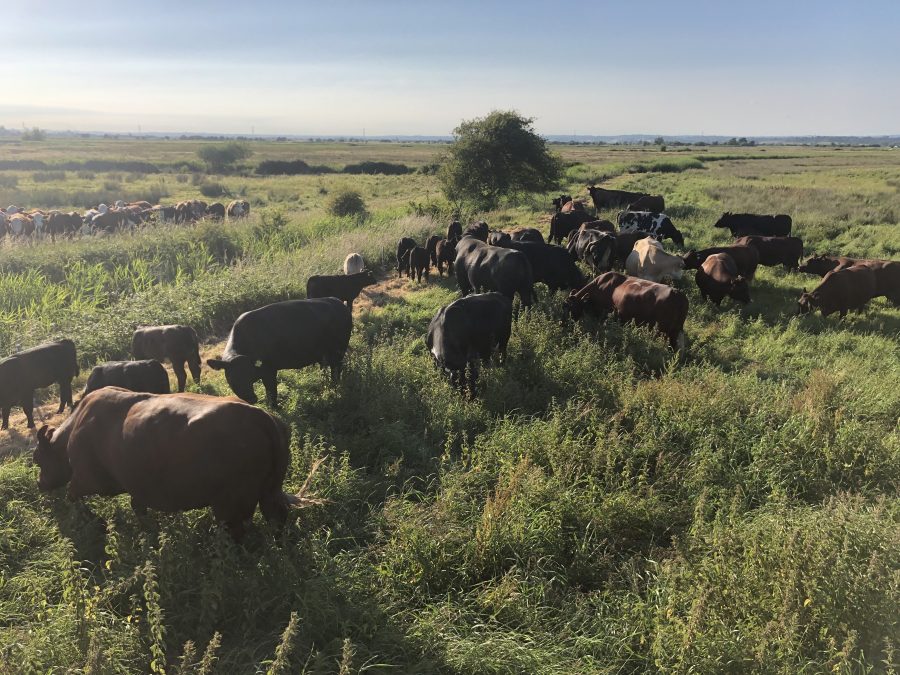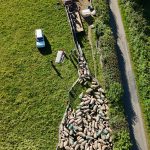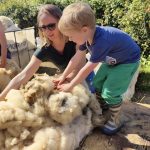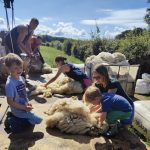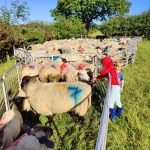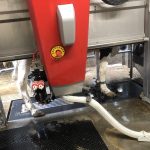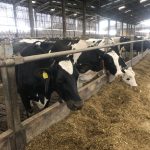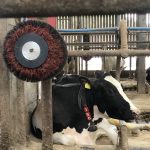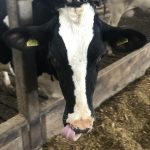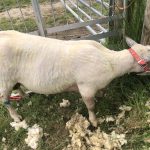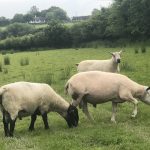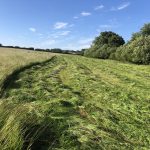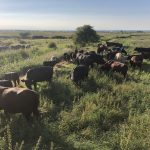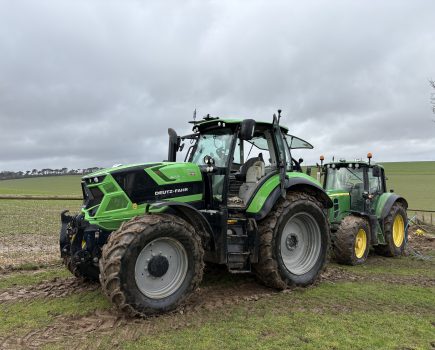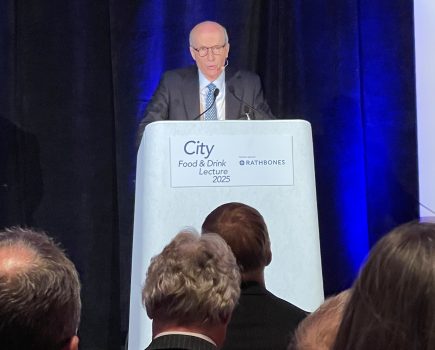“Hippy dippy, tree hugger,” my son-in-law joked when I told the family that I’d signed up to a whole health foundation course in farm homeopathy. I intend to prove that my sceptic’s comments are unfounded. My focus is to try and improve the welfare of our animals by using homeopathic knowledge and remedies with an emphasis on prevention. I hasten to add that this will not replace the services of vets when necessary.
I’m grateful for the FIPL (Farming in Protected Landscapes) grant funding which has made this course affordable for me to join. I’m enjoying the online course, which can be done at your own pace; there are some live online sessions and once a month a group of us in Sussex meet up. Learning together is more fun, and we get to discuss individual cases that we’ve experienced and how best to manage them. Chatting with other livestock keepers provides valuable tips.
At the end of the course I will have created a year-round health plan specifically for our farm, incorporating practical application of farmer-tested solutions, including preventative protocols to avoid problems and treatment for common conditions. So far, it’s teaching me to improve my observation of animal behaviour and question why. I really like the emphasis on prevention. I think being ahead of the game is half the battle and hopefully results in less stress and expense for the farmer. I’ll let you know how it goes.
Heathfield show day was fine, so we sneaked away from the farm to attend and caught up with several people we hadn’t seen in a while. The highlight for me is to walk along the aisles of the livestock enclosures and admire the quality of the stock, find out who’s bred them and chat to their owners/herdsman. This year I was disappointed. We were thwarted three times (morning, midday, and afternoon) when we tried to gain entry, being told “no entry as judging is going on” – all day? Possibly health and safety-led, a sad reflection of our time, but in my opinion this approach is counterproductive to promoting farming.
On 30 May I attended an Innovation for Agriculture event held in the AgriFood Centre at Plumpton College. It was entitled Farm of the future; putting regenerative livestock production into practice. It was well worth attending, offering a refreshing air of enthusiasm for farming practices that produce food sustainably. During the morning there were several inspiring speakers, all with a ‘can do’ attitude, talking about embracing change and adapting to more regenerative farming methods.
In the afternoon we looked around the farm’s facilities. The farm covers 790ha across a range of different land types supporting the following ventures: Dairy – 230 Holstein cows with an average daily yield of 32 litres; sheep – 250 commercial ewes and 50 pedigree South Downs (with plans to increase flock sizes); pigs – 100 breeding sows, average weaning 14 piglets per litter; beef – 50 pedigree Sussex cows, finished extensively; arable – 300ha in a rotation of new ley grass, maize, combinable crops and oilseeds.
I was particularly interested to see a robotic milking machine in action, which was fascinating. While one cow was being milked, a couple of others were peering in, looking like they were keen to have their go. Apparently one Lely A5 Astronaut (robotic milker) is required per 60 cows. The cows decide when they eat, drink, relax and take themselves off to be milked. The robot is set to not milk them more frequently than six hourly; there are always some greedy keenos.
According to the plaque on the wall, the benefits for the cows are freedom of movement, expression of their natural behaviour, stress free, udder health improvement and individual data collection on milk quality and weight which enables health issues to be flagged up at an early stage.
We were also told about the importance of having soil tested and the advantages of monitoring it, something I’ve resolved to action on our land as it hasn’t been tested recently. We also got to view a smart New Holland methane-powered production tractor and a Claydon drill. The sales team made them sound amazing, a must have for the future. Even though sheep prices are good, a quick look in my piggy bank assured me that for us it isn’t an option right now.
Back on our farm, when cattle are grazing contentedly, checking them is a satisfying task. Undoubtedly the wet ground conditions at turnout have left their mark, but there is plenty of grass. Even so we have had a few offenders who struggle to restrain their adventurous spirit and swap groups.
We’ve had to do a certain amount of patching and reinforcing fences, and found that decent chestnut stakes are not so readily available these days. We also applied for some grant funding to update our electric fencing kit, as much of our present supply is past its best; putting this up is a laborious chore. Time is always in short supply, so improving efficiency has to be a step in the right direction.
I applied fly cover to my ewes in early May, so their protection is about to run out. I’ll need to be extra vigilant until the shearing gang arrives. The lambs are protected with Clik Extra so they should be safe for a while yet. I removed the fleeces from our rams myself using our Horner battery pack Rambo shears. It was done very unconventionally; I slipped a collar on them and did them standing up. I was surprised how well they behaved and the result was satisfying. The fleeces are now nurturing young hedgerow plants.
I’ve been horrified at how quickly bracken has regrown in one of our hedgerows, where I thought I had conquered it in early spring by pulling it out roots and all. It has come back with a vengeance, so now I’m repeating the battle. I’m told if it is done before August it is more effective.
I’ve lost faith in all politicians; none of them seems to be capable of giving a straight answer. I’ll be surprised if we haven’t got a new government by the time you read this. I just hope whoever it is values farmers and food security.
- Flock penned ready for the professional shearers, ready to go
- Rolling fleeces
- Grandsons learning all about shearing
- Who needs a wool press when you have grandkids?
- Lely robotic milking machine in action
- Cows feeding
- Cows relaxing, wearing neck collar containing sensor enabling robot to collate data
- Quick nostril clean
- New Holland Methane Powered Production Tractor
- I sheared my rams early, via standing up shearing method
- My maximum shearing quota per day is two !
- Cutting grass, haymaking weather at last
- An evening check on suckler herd grazing on Pevensey levels
For more like this, sign up for the FREE South East Farmer e-newsletter here and receive all the latest farming news, reviews and insight straight to your inbox.

